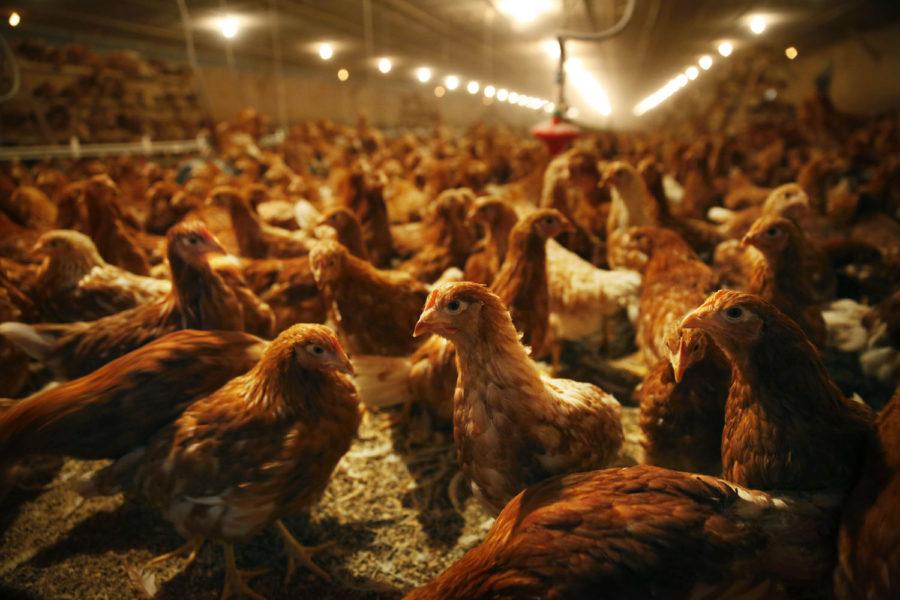Will chicken waste endanger Carbondale’s drinking water?
March 27, 2016
Farm owner Everett Kauffman is nearing completion on a cage-free chicken farm that would house some 25,000 laying hens about a quarter-mile from Cedar Lake, the municipal water supply for Carbondale and surrounding towns.
This has caused about 600 people from Jackson County to sign a change.org petition to end construction. The petition has been signed by a total of nearly 6,000 Illinois residents.
Kauffman declined to comment for this story.
Advertisement
The Illinois Department of Agriculture calculates farm size in “animal units” by predicting the amount of waste an animal produces, said Nick Anderson, a member of the Illinois Livestock Development Group who works with Kauffman. Chickens only account for .01 of an animal unit, meaning 25,000 chickens would equate to 250 animal units, according to the department’s website.
“From the standards of the Livestock Management Facility Act and the Environmental Protection Agency, he is a very small farm,” Anderson said.
Anderson said Kauffman has met all the requirements dictated by the department’s Livestock Management Facility Act and the Illinois Environmental Protection Agency’s Clean Water Act.
The building where the chickens are cooped and the waste-storage shed are contained by 5-inch-thick reinforced concrete that is water and nutrient tight as to not allow for a breach of waste material.
Not only are people concerned that feces could breach the facility, some say there could be waste run-off from manure applied to crops.
But Anderson said the farm already has a variety of crops that purchased fertilizer is applied to. He said this fertilizer contains similar levels of nitrogen and phosphorus as the chicken manure Kauffman will soon use to fertilize his plants.
“We raise corn and soybeans in Illinois and most of that goes to animal livestock, so he’s actually raising corn and soybeans to feed those animals and taking the manure back out to grow corn and soybeans,” Anderson said. “It’s a pretty good system.”
Advertisement*
Even with precautions in place, members of the community are concerned that the proximity of the farm to the lake poses a threat to the drinking supply.
Retha Daugherty, a 30-year resident of Carbondale and wastewater clean-up specialist, said no matter what measures are in place, she will not rest assured that her drinking water is safe.
“We need clean drinking water,” she said. “That is a no-brainer and we’re not going to let anybody mess with our clean drinking water as long as we can stop it.”
The petition was presented to the Jackson County Board on March 15, but the county government has no jurisdiction regulating farms, Jackson County Board Chairman John Rendleman said.
At the meeting a comprehensive zoning plan was discussed to give the county board some control over the location and operation of farms, but the board failed to establish a task force to look further into the issue, he said.
The county board offered to monitor the farm for the state agriculture department, but has not yet received a response.
“I appreciate the concern of the citizen,” Rendleman said. “I wish there was more we could do and I don’t think we have seen the last of the county looking at zoning.”
Tyler Crotzer can be reached at [email protected] or 618-536-3325.
Advertisement








